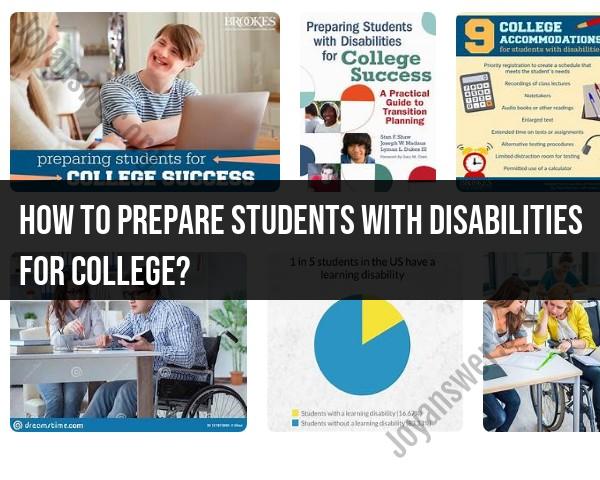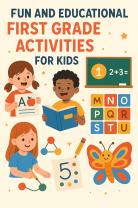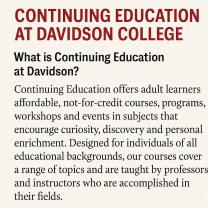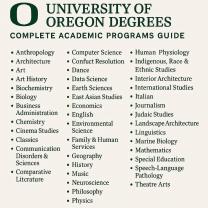How to prepare students with disabilities for college?
Preparing students with disabilities for college success involves a combination of academic, emotional, and practical preparation. Here are some steps and strategies to help students with disabilities transition to and succeed in college:
Start Early: The preparation for college success should begin in high school or even earlier. Encourage students to take rigorous coursework and engage in extracurricular activities to build their academic and social skills.
Know Your Rights: It's crucial for both students and their parents or guardians to understand the rights and accommodations available under laws like the Americans with Disabilities Act (ADA) and Section 504 of the Rehabilitation Act. Knowing their rights will empower students to advocate for themselves.
Individualized Education Plan (IEP): Students with disabilities often have IEPs in high school. Make sure the IEP is comprehensive and includes transitional goals that prepare the student for college. This could include developing self-advocacy skills, time management, and organization.
Self-Advocacy Skills: Teach students how to self-advocate. They should be able to communicate their needs and preferences to professors, disability services offices, and classmates. Encourage them to take responsibility for their education.
Explore College Options: Research colleges and universities that are known for their support services for students with disabilities. Visit campuses and meet with disability services staff to assess the available resources and accommodations.
Seek Support Early: Once accepted to a college, students should contact the disability services office well before their first semester. They can discuss their specific needs and ensure that necessary accommodations are in place from the beginning.
Time Management and Organization: Help students develop strong time management and organizational skills. College often requires more independence and self-regulation, so students should have strategies in place for managing coursework and deadlines.
Academic Support Services: Familiarize students with the academic support services available on campus, such as tutoring centers, writing centers, and study groups. These resources can provide valuable assistance.
Use of Assistive Technology: If students rely on assistive technology, ensure they are proficient in using these tools and that they have access to any required software or devices in their college environment.
Emotional and Social Support: College can be emotionally challenging. Encourage students to build a support network of friends, mentors, and advisors who understand their needs. Many colleges offer counseling services that can help students cope with stress and emotional challenges.
Financial Planning: Assist students in understanding the financial aspects of college, including budgeting, financial aid, and scholarships. Some students with disabilities may qualify for specific scholarships.
Practice Self-Care: Emphasize the importance of self-care, including managing stress, eating well, and getting enough rest. Students should know when to seek help and support for their mental and physical well-being.
Legal and Medical Documentation: Ensure that students have all necessary legal and medical documentation, including current evaluations or medical records that substantiate their disability and support their accommodation requests.
Set Realistic Expectations: Discuss with students that college may come with challenges, but it's also a time for growth and independence. Encourage them to set realistic academic and personal goals.
Plan for Graduation: Encourage students to think about their career goals and plan for life after college, which may involve internships, job placements, or further education.
Preparing students with disabilities for college success is a collaborative effort involving students, parents, teachers, and college staff. By taking proactive steps and fostering self-advocacy skills, students with disabilities can thrive in the college environment and beyond.
How to adequately prepare students with disabilities for success in college education?
Adequate preparation for students with disabilities in college education requires a comprehensive approach that addresses both academic and social-emotional needs.
Academic preparation:
- Identify and address any academic deficits. This may involve providing students with extra support in specific areas, such as math, reading, or writing.
- Teach students self-advocacy skills. Students need to be able to communicate their needs to professors, disability services staff, and other members of the college community.
- Help students develop effective study skills and time management strategies. College coursework is often more rigorous than high school coursework, so students need to be able to manage their time and workload effectively.
Social-emotional preparation:
- Help students develop self-awareness and self-determination skills. Students need to understand their strengths and weaknesses, and they need to be able to set goals and make decisions for themselves.
- Teach students coping skills for dealing with stress and anxiety. Transitioning to college can be a stressful experience for students with disabilities, so they need to have healthy coping mechanisms in place.
- Help students develop a support network of friends, family, and mentors. Having a strong support network can help students navigate the challenges of college life.
In addition to academic and social-emotional preparation, it is also important to make sure that students with disabilities have access to the resources and support services they need to succeed in college. This may include disability services, tutoring, counseling, and other accommodations.
What are the strategies and support systems for assisting students with disabilities in their college journey?
There are a number of strategies and support systems that can be used to assist students with disabilities in their college journey. Some of the most common include:
Disability services: Disability services offices at colleges and universities provide a variety of services to students with disabilities, including academic accommodations, financial aid assistance, and other support services.Tutoring: Tutoring can be a valuable resource for students with disabilities who need extra help in specific academic areas.Counseling: Counseling can help students with disabilities address social-emotional challenges, such as stress, anxiety, and depression.Accommodations: Students with disabilities may be eligible for accommodations in the classroom, such as extended time on tests, note-taking assistance, and assistive technology.
Students with disabilities should also be encouraged to get involved in campus life. This can help them develop social skills, make friends, and feel more connected to the college community.
How to create an inclusive and empowering college environment for all learners?
Creating an inclusive and empowering college environment for all learners requires a commitment from the entire college community. This includes administrators, faculty, staff, and students.
Some of the things that colleges can do to create an inclusive environment include:
- Provide disability awareness training to all faculty and staff. This training should help faculty and staff understand the needs of students with disabilities and how to best support them.
- Develop and implement policies and procedures that ensure equal access to all students. This includes policies and procedures related to academics, housing, dining, and student activities.
- Provide accessible facilities and technology. This includes making sure that all buildings and classrooms are accessible to students with disabilities, and that all students have access to the technology they need to succeed.
- Create a welcoming and supportive environment for all students. This includes promoting diversity and inclusion on campus, and creating a climate where all students feel respected and valued.
Students with disabilities can also play a role in creating an inclusive environment by getting involved in disability-related organizations and advocating for themselves and other students with disabilities.
By working together, colleges and students can create an inclusive and empowering college environment for all learners.













